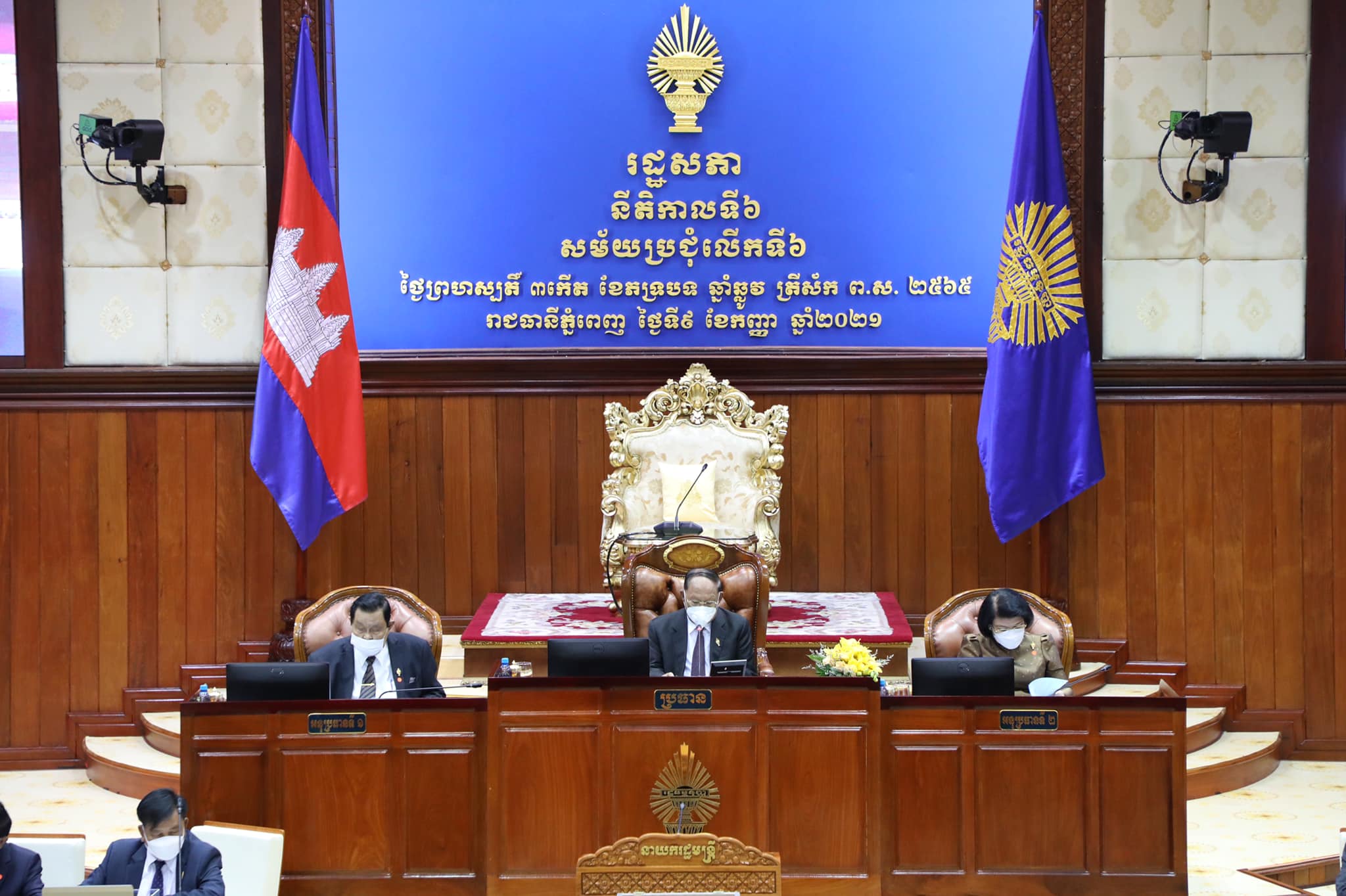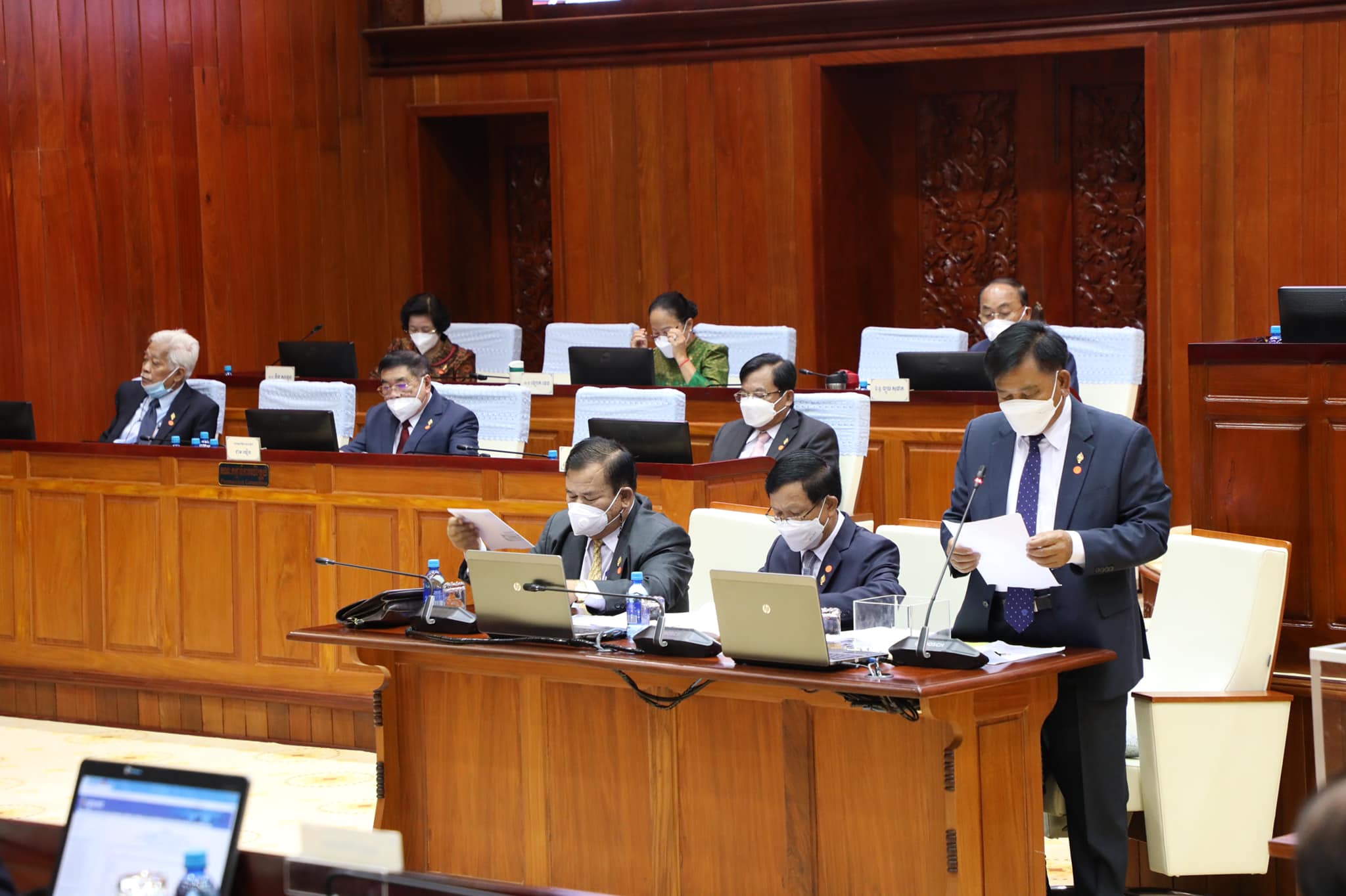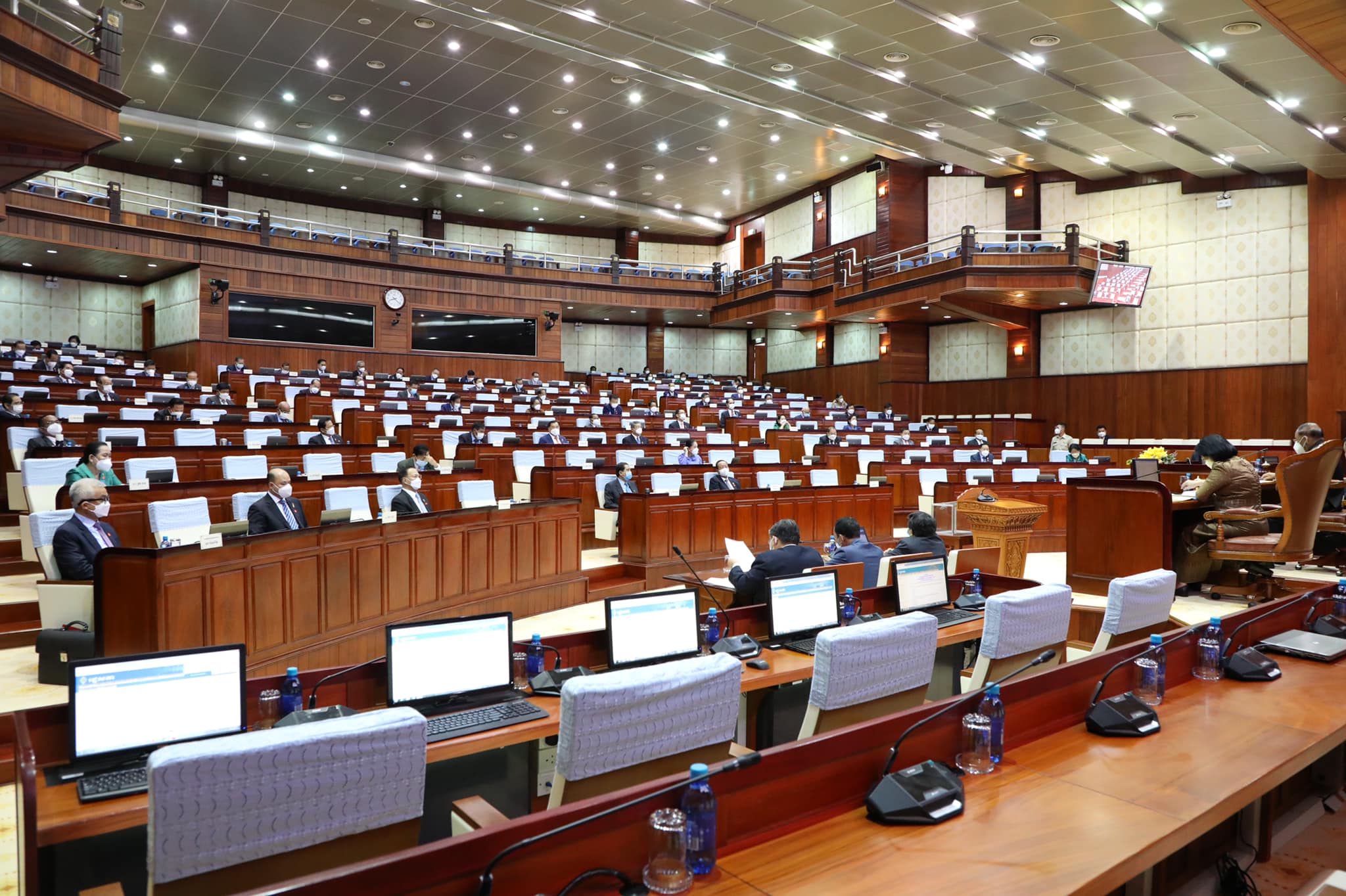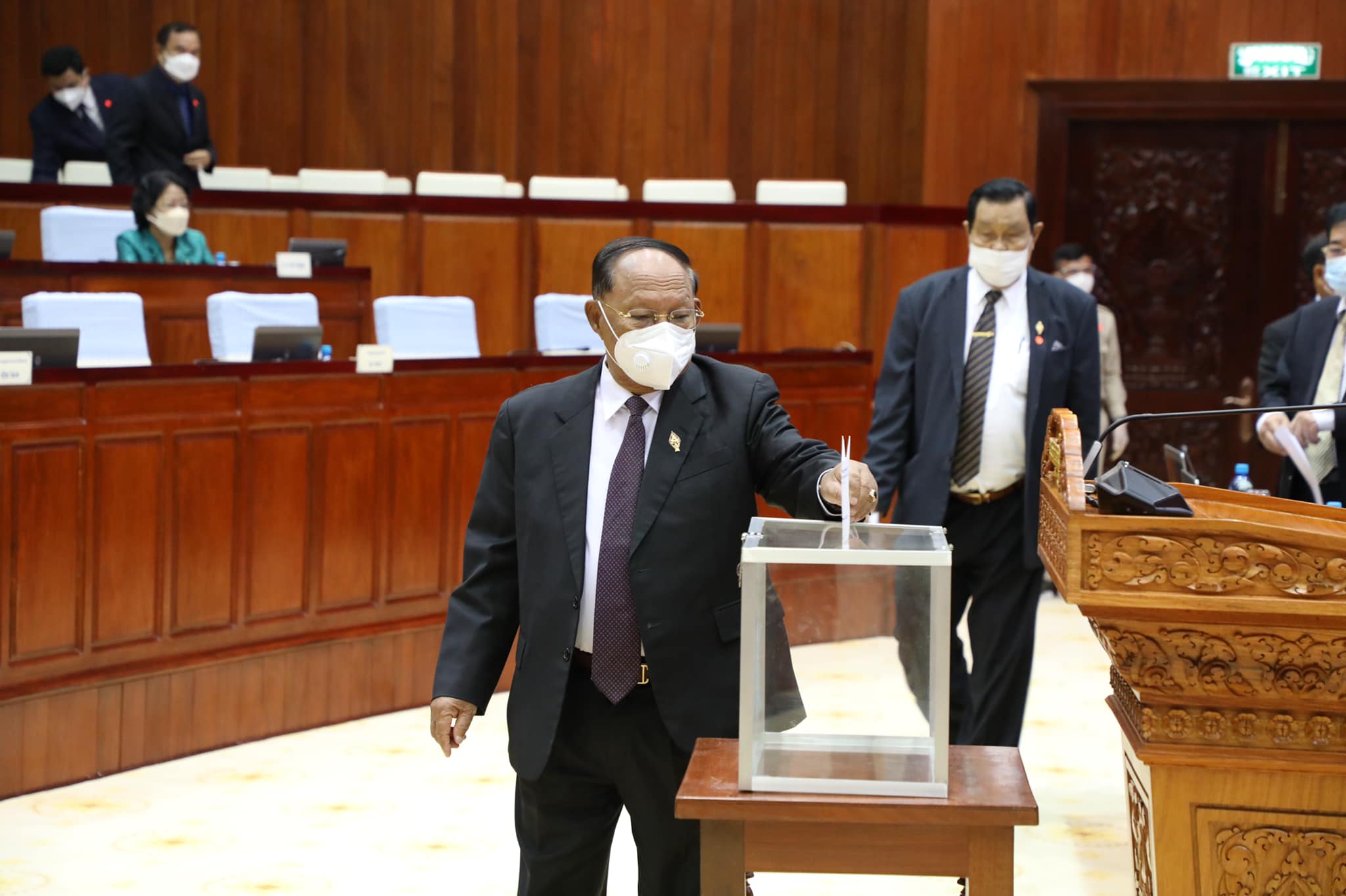Phnom Penh: President of the National Assembly, Heng Samrin, presided over the 6th session of the National Assembly of the 6th legislature on Thursday morning. A raft of draft laws have been approved, all aimed at boosting trade and the economy.
The draft laws to be approved include the Comprehensive Economic Partnership Agreement, the Free Trade Agreement with the People's Republic of China, the Law on Competition, the Law on Investment of the Kingdom of Cambodia and the Law on the Approval of the Protocol Amending the ASEAN Agreement Plus Three on Emergency Rice Reserves. A number of draft amendments to articles of the Labour Law and the Audit Law have also been approved. All now proceed to the senate. Once approved there, they will be sent to the King for his signature.
The National Assembly says the draft laws provide “better opportunities for the Royal Government to build and develop the nation, as well as contribute to the region and the world, ensuring sustainable development, especially the draft law on the ratification of partnership agreements”. Oncde approved, the new laws will see the regional economy becoming the core framework for promoting regional trade and investment by further expanding the regional value chain and creating more market and employment opportunities across the country and the broader region.
Lawmakers say the "Draft Law on Investment of the Kingdom of Cambodia" is of particular importance. It was initiated by the Cambodian Industrial Development Policy Document 2015-2025. It aims to attract quality, efficient and effective investment by Cambodian or foreign individuals, to develop Cambodia's socio-economic situation through the establishment of a transparent and non-discriminatory investment incentive regime. It promises competitive and supportive socio-economic policies, together with a focus on modernization. That will see an increase in the productivity of local industries and strengthen connectivity to regional and global supply chains by promoting increased inflows of capital and the transfer of technology and know-how.

























